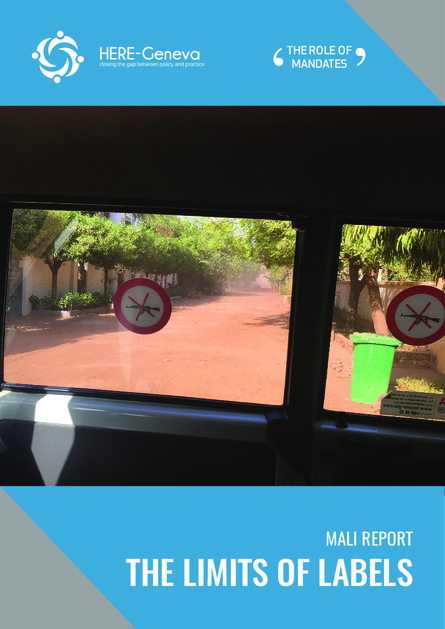HERE 'Mandates Study' Mali Report

The research behind this report was carried out as part of HERE’s broader study on “The role of ‘mandates’ in humanitarian priority setting for INGOs in situations of armed conflict”. This study is based on the recognition that the majority of international non-governmental organisations that are active in humanitarian response define their purposes broadly, to include both short-term emergency response and long-term development engagement. In contrast, a small minority of organisations exclusively focus on life-saving assistance in emergency settings. In humanitarian discourse, these approaches are frequently distinguished as ‘multi-’ or ‘single-mandate’. This study has set out to investigate the relevance of this distinction, and the practical opportunities and limitations that would arise from such different organisational approaches. As such, the study takes a look at how organisations set priorities and come to strategic choices, and how that enables them to fulfil their goals on the ground. This case-study report on Mali is but one part of the research puzzle, and as such provides elements that will help answering the broader questions of the overall study.
Mali was chosen as the pilot mission in the framework of HERE’s so-called ‘Mandates Study’ because it presents a complex context of overlapping and sometimes conflicting issues that make the research questions of that project all the more significant. Exploring the prioritysetting of organisations with varying ‘mandates’ – broadly understood here as their goal or mission – and against external parameters such as institutional funding, becomes particularly relevant in a context where they have to work around conflicting labels of humanitarian and development needs, emergency and long-term impact, and issues referring to the integration, stabilisation, and counter-terrorism agendas of a number of military operations.